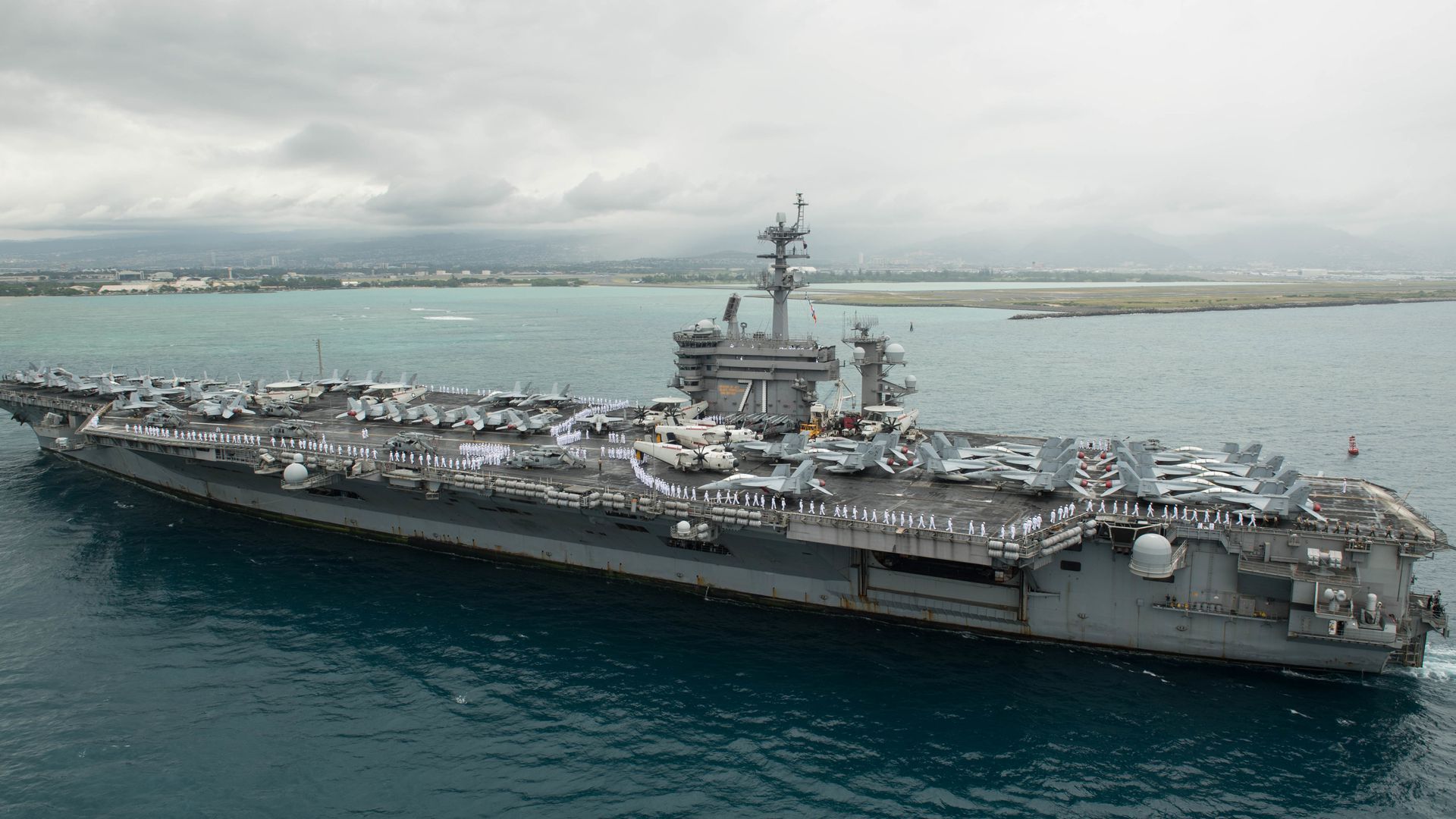National defense has a pandemic gap
Add Axios as your preferred source to
see more of our stories on Google.

USS Theodore Roosevelt. Photo: Smith Collection/Gado/Getty Images
A sailor on the aircraft carrier USS Theodore Roosevelt died this week from COVID-19, and nearly 600 sailors on the ship have tested positive for the novel coronavirus.
Why it matters: The effective loss of one of the U.S. Navy's prime assets because of the spreading pandemic underscores the threat infectious disease poses to American military readiness — and the failure of the national defense establishment to prepare for it.
The U.S. spends nearly $700 billion a year on national defense — more than the combined budgets of its closest competitors. But that hasn't protected the military from COVID-19.
- The Theodore Roosevelt has essentially been knocked out by the novel coronavirus, something no enemy combatant has managed since World War II. (And crew members have reportedly tested positive on other carriers.)
- More than 27,000 Americans have so far died from COVID-19, a number that easily exceeds U.S. combat deaths in Iraq and Afghanistan, and models suggest the coronavirus death toll will eventually surpass casualty numbers from bloodier conflicts like the Vietnam War.
Between the lines: The U.S. military is set up to fight physical threats, not biological ones — but in an age of pandemics, that's arguably a failure.
- "We need to think about national security not just in terms of tanks and nation-states, but in terms of viruses and disease," says Gregory Koblentz, an associate professor at George Mason University's Schar School of Policy and Government.
- That may mean rethinking how we allocate funding. The Defense Department, as Sen. Chris Murphy (D-Conn.) wrote on Twitter last week, gets about 100 times as much money as non-HIV global health programs.
- "Hopefully this will be an important moment for policymakers to realize there is more they could do with the threat of disease," says Michael Hunzeker, a Marine veteran and the associate director of the Center for Security Policy Studies at George Mason.
Go deeper: Navy sailor who was aboard USS Theodore Roosevelt dies of coronavirus
